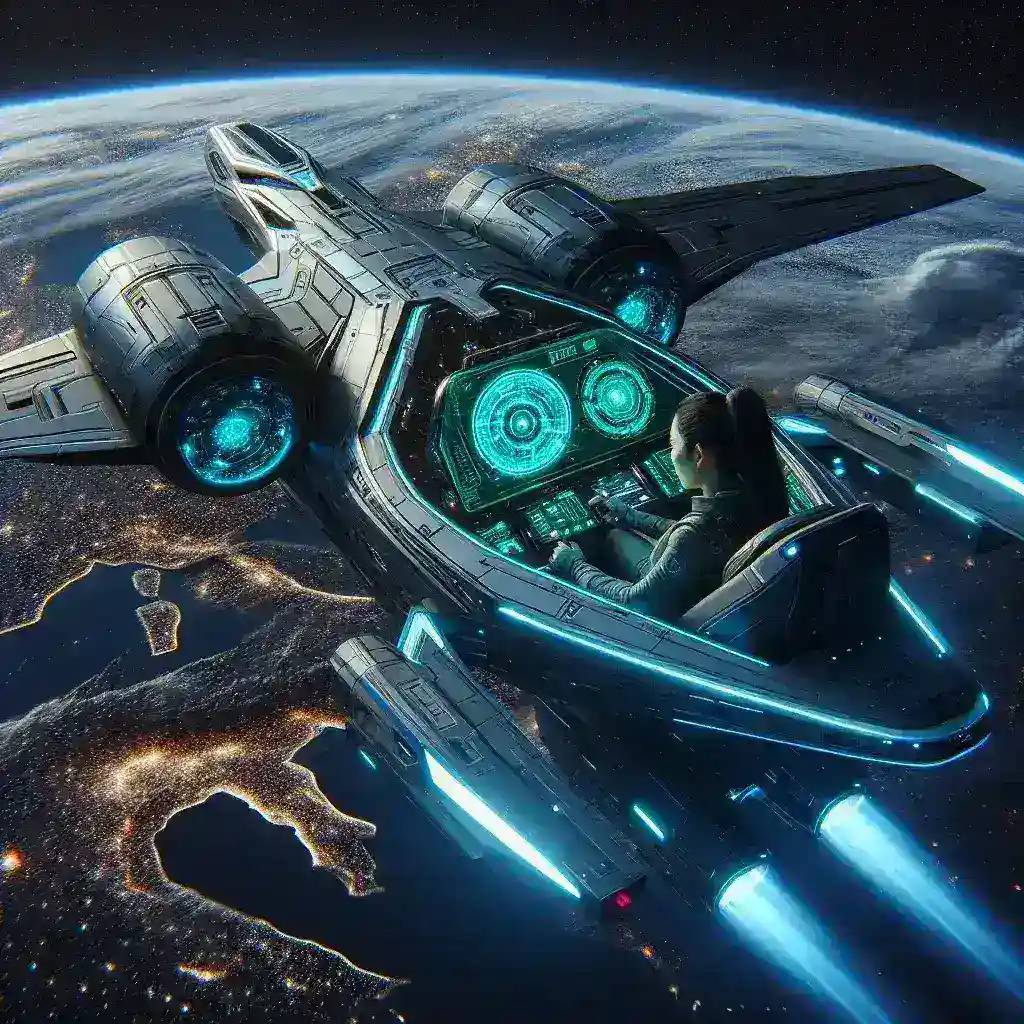Introduction
As the race for space tourism intensifies, Virgin Galactic stands at the forefront of innovation. Integrating AI pilot-assist technology into its suborbital flights marks a significant leap forward in aerospace technology. This advancement not only enhances safety but also optimizes the overall flight experience for passengers, making space travel more accessible and reliable.
The Historical Context of Virgin Galactic
Founded in 2004 by Sir Richard Branson, Virgin Galactic has been a pioneer in commercial space travel. The company made headlines with its ambitious aim to take private citizens to the edge of space. After years of development and testing, they achieved a significant milestone in July 2021, when the VSS Unity spacecraft successfully carried Branson and a crew to suborbital space.
The Evolution of Flight Technology
Historically, space travel has been complex and fraught with risks. The introduction of automation in aviation has significantly reduced human error, and now Virgin Galactic is extending this concept to space. With the integration of AI pilot-assist technology, the complexity of suborbital flights can be managed more effectively.
Understanding AI Pilot-Assist Technology
The AI pilot-assist system developed by Virgin Galactic is designed to work in tandem with human pilots. This system utilizes advanced algorithms and machine learning to analyze real-time data, ensuring that the flight remains on course and within safety parameters.
How AI Enhances Safety
- Real-Time Monitoring: The AI system continuously monitors flight conditions, including weather patterns and technical performance, enabling timely decisions.
- Data Analysis: By analyzing historical flight data, the AI can predict potential issues, allowing pilots to take preventative measures.
- Automated Responses: In critical situations, the AI can assist or take control, ensuring that safety protocols are followed without delay.
Improving Passenger Experience
The AI pilot-assist technology does more than enhance safety; it also enriches the passenger experience:
- Smooth Operations: With AI handling routine tasks, pilots can focus on managing the flight and interacting with passengers.
- Enhanced Communication: AI can provide passengers with real-time updates about their flight status and upcoming experiences.
- Personalized Experiences: Gathering data on passenger preferences can help tailor the journey to individual tastes.
Future Predictions for Space Travel
The integration of AI in suborbital flight is just the beginning. As technology continues to evolve, we can expect:
- Increased Automation: Further advancements in AI may lead to fully automated spacecraft, reducing human intervention in routine operations.
- Wider Accessibility: As costs decrease, more people will have the opportunity to experience space travel, potentially leading to a new era of space tourism.
- Collaborative Space Ventures: Companies may partner more frequently to share technology, data, and best practices, enhancing safety and efficiency across the board.
Pros and Cons of AI Pilot-Assist Technology
Pros
- Enhanced Safety: AI significantly reduces the risks associated with human error.
- Efficiency: Improved real-time data processing optimizes flight operations.
- Cost-Effectiveness: Long-term, reduced pilot workload could lower operational costs.
Cons
- Dependence on Technology: Over-reliance on AI could lead to skill degradation among pilots.
- Technical Failures: Malfunctions in AI systems could pose risks if not adequately managed.
- Public Trust: Gaining the trust of passengers in automated systems remains a challenge.
Real Examples of AI in Aviation
Virgin Galactic is not alone in its pursuit of integrating AI in aviation. Major airlines and manufacturers are actively exploring similar technologies:
- Boeing: The company has invested in AI systems to optimize flight schedules and enhance maintenance predictions.
- Airbus: Their A320 aircraft uses AI for pilot assistance, making operations more efficient and safe.
- NASA: The space agency employs AI in various projects to enhance safety and efficiency in missions.
Cultural Relevance of Space Travel
As society continues to embrace the idea of space tourism, the cultural implications are profound. The aspiration to explore beyond Earth resonates with humanity’s innate desire for discovery and adventure. Virgin Galactic’s advancements in AI technology symbolize not just a technological leap but also a cultural shift towards viewing space as a frontier for all, not just the elite.
Conclusion
Virgin Galactic’s integration of AI pilot-assist technology for suborbital flights represents a landmark moment in the evolution of space travel. By enhancing safety, improving operational efficiency, and enriching the passenger experience, this innovation paves the way for a future where space tourism is not only a dream but a reality for a broader audience. As we look ahead, the collaboration between human ingenuity and artificial intelligence will undoubtedly shape the future of aerospace, offering new possibilities in exploration and travel.

Leave a Reply